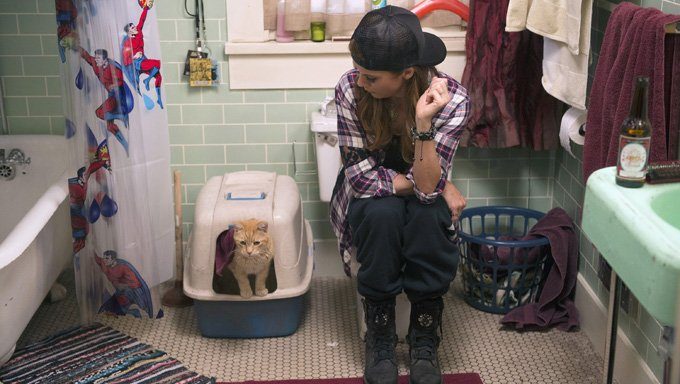Cats bring a lot of joy to our lives, but they can also bring an unexpected complication: stinky litter.
You may be familiar with that sinking, stinking feeling. Your cat runs up to you, happy with their tail high in the air. You give them a friendly pet and a treat, but then you smell something.
You sniff again. Yes, a very familiar odor is wafting from that corner where you keep the litter box out of sight. And now that smell is taking over everything. What can you do?
There are many different factors that can contribute to stinky litter, so here’s a primer to help you figure out the solution. Read on to learn how to add a breath of fresh air to you and your cat’s lives.
1. Try A Different Kind Of Litter
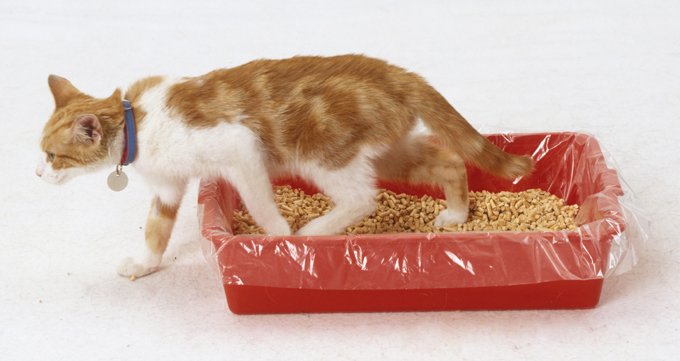
Not all litter brands are created equal. Some types of litter might be better at absorbing scents and some may be more preferable to your cat. You may need to experiment to find a litter that’s the right mix of acceptable to your nose and acceptable to your feline.
A clumping type of litter, for example, can let you remove particles better and, in the process, help keep the smell down. Other litters are formulated specifically to absorb scents, but if they also are heavy in perfume, they may scare your cat away.
Try setting up a “litter cafeteria” of sorts where your cat has a choice of different kinds of litter to find out which they like best. Then you can narrow those down to figure out which also absorb scents the best.
2. Experiment With Litter Boxes
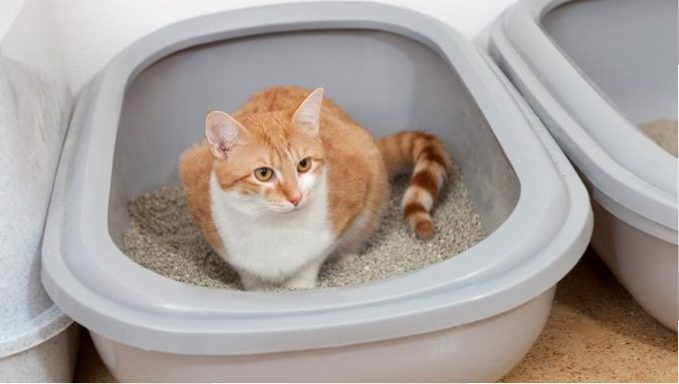
A new litter box might also help your problems.
Some boxes come with covers that have filters to diffuse putrid scents. Other boxes may automatically clean the litter, which can certainly cut down on a stinky smell.
But before you drop a lot of money on a fancy self-cleaning litter box, make sure that you’re okay with possibly having to toss or resell the box later. Some cats are very picky about their boxes and won’t use an expensive litter box.
If you have a box that your cat won’t use, consider donating it to a local animal shelter. Call and ask if they will take it, first.
3. Clean The Litter Box Frequently

A big reason for smelly boxes is simply that cat parents don’t clean them frequently enough.
If you’re not cleaning the litter box at least once a day — ideally twice a day — then the smell will start catching up with you. If you use clumping litter, consider washing the box at least every other week with a mild dish detergent.
Also, remember to clean the scooper too.
4. Look For ‘Trapped’ Scents
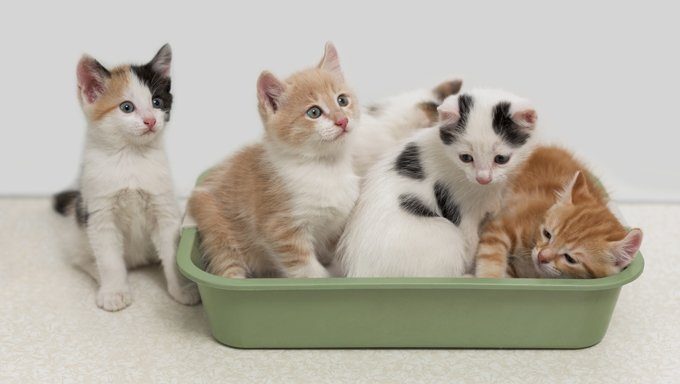
When the offensive scent persists despite changing out the litter, be sure to clean the areas around the litter box thoroughly and the litter box itself.
If you use a litter liner, cat urine can sometimes get trapped under the liner where you can’t see it, leading to a lingering smell. If you’re using a covered litter box and the top isn’t on tight enough, your cat may “spray,” and urine could fall in between the top and the bottom of the box, possibly leaking down the side.
Your cat might even be secretly peeing behind the litter box where you can’t see it. So do a thorough check to look for any hidden smells.
5. Feed Your Cat Healthy Food
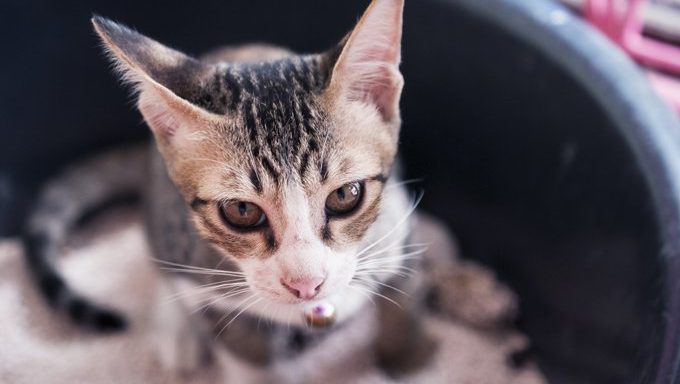
Sometimes the type of food your cat is eating can also contribute to extra stinky stools.
You might be surprised to learn that kitten food and high protein cat food can make poop stinkier. Even vitamin supplements can make your cat’s droppings smell more.
Talk to your vet and try out different brands of cat food to see if a change helps. Just make sure you change your cat’s food gradually so you don’t upset their stomach.
If you’re thinking about supplements, don’t add anything to your kitty’s food without checking with your vet first to make sure it’s safe.
6. Take Your Cat To The Vet
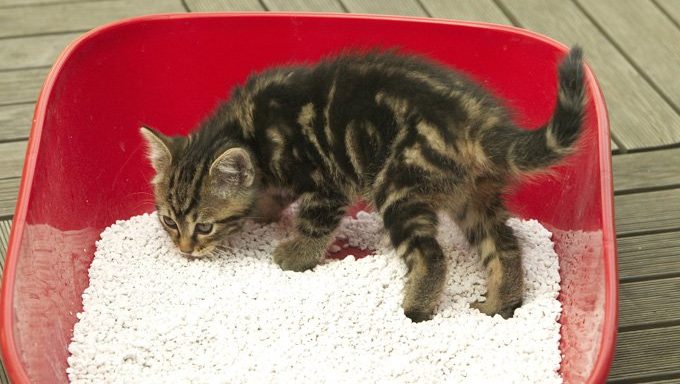
If your cat’s poops are particularly stinky, you might want to make sure there aren’t any underlying health issues contributing to the problem.
Bacteria, viruses, and even parasites can cause extra smelly stool in cats. So if the problem seems persistent, take your kitty to the vet for a checkup.
7. Avoid Deodorizers
It may seem counterintuitive, but deodorizers and air fresheners can make your problem worse.
Cats can be very picky about their litter areas. If you use air fresheners around the litter box, the new scent might drive your cat away. Just sprinkling a little baking soda in your litter box can help cut down on the smelliness without putting your cat off.
You can also try making your own all-natural air freshener for the litter box area. PetMD suggests taking cheesecloth, filling it with some activated charcoal, and tying the bundle up with twine.
If your cat’s litter is stinky, don’t panic. You won’t have to live with the problem forever. Just put on your detective hat and follow our tips to get to the source of the problem. You and your cat will be happy you made the effort.
Do you have any tips for cutting down offensive odors from a litter box? What’s your advice for fellow cat lovers? Let us know in the comments below!
Related Articles:
